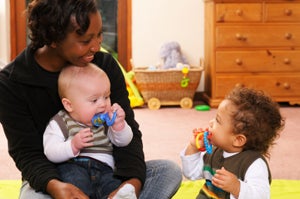Mental health consultants should demonstrate awareness and knowledge of cultural beliefs and perceptions that may influence use and acceptance of interventions to address emotional and behavioral concerns for young children and their families. In designing strategies to support individual child and family focused concerns or ECE program concerns, a culturally competent consultant must reflect on …

Consultants must find ways to describe the child’s behavior, any observations and screening/assessment results, and hypotheses about the cause of the concern in a “dialogue” with families and providers in ways that are meaningful and culturally relevant to the child’s family and care providers. Review the case study of Juana, her family, and her experience …

Defining the Concern Early childhood mental health consultation is primarily focused on promotion, prevention, and intervention in the ECE setting. In general, mental health consultants gather information and use screening, and assessment strategies to define the concern rather than determine a formal clinical diagnosis. When defining the concern in a consultation model, the consultant must …
First, identify and list the linguistic and cultural considerations related to screening and assessment instruments for the children and families that you serve. Then explore the Social Emotional “Choose & Use” Guides using the interactive review process based on language, norming sample racial ethnic diversity, and other factors.
In practice, early childhood mental health consultants will complete observations of both individual children and classroom environments. They may also complete screening and assessments for individual children, but in the consultant role, are more likely to guide the selection of instruments, the implementation and interpretation of the results, and the implications for any planned intervention …
NOTE: Save or print a copy of the Culturagram for the activity that follows. Review the vignette below and use the Culturagram as a guide to identify what information has been gathered, where further exploration would be valuable, and in what areas, if any, no information has been gathered. Vignette – Chloe Huan My name is Dr. Jackie …

Gathering information and building trust with families and providers is most successful when approached with sincere interest, reflective listening, empathy, and suspended judgment. It involves acknowledging family and/or provider concerns, gathering information with purpose, and offering reassurance (Betancourt, 2004). In practice, gathering information usually includes an interview process with parents and providers, direct observation of …

Once a referral is received and the ECE provider indicates the family is open to consultation, the consultant should work with staff to consider the best way for the consultant to be introduced to and meet with the family as well as who should be included. How consultants enter a relationship with a family can …

Family Readiness for Consultation and Addressing Stigma Families must also be “ready” for consultation. Family members (as well as staff) often have culture-based perceptions about what “mental health” means and may be resistant to meeting a mental health consultant who will work with them and their child. Especially when working across cultural boundaries, it is …

Program Readiness for Consultation The early care and education program and staff must be ready for the presence of the mental health consultant and mental health consultation services. The cultural perspectives of the organization as well as the individual staff members both come into play. Under the leadership of the ECE program director, much of …





